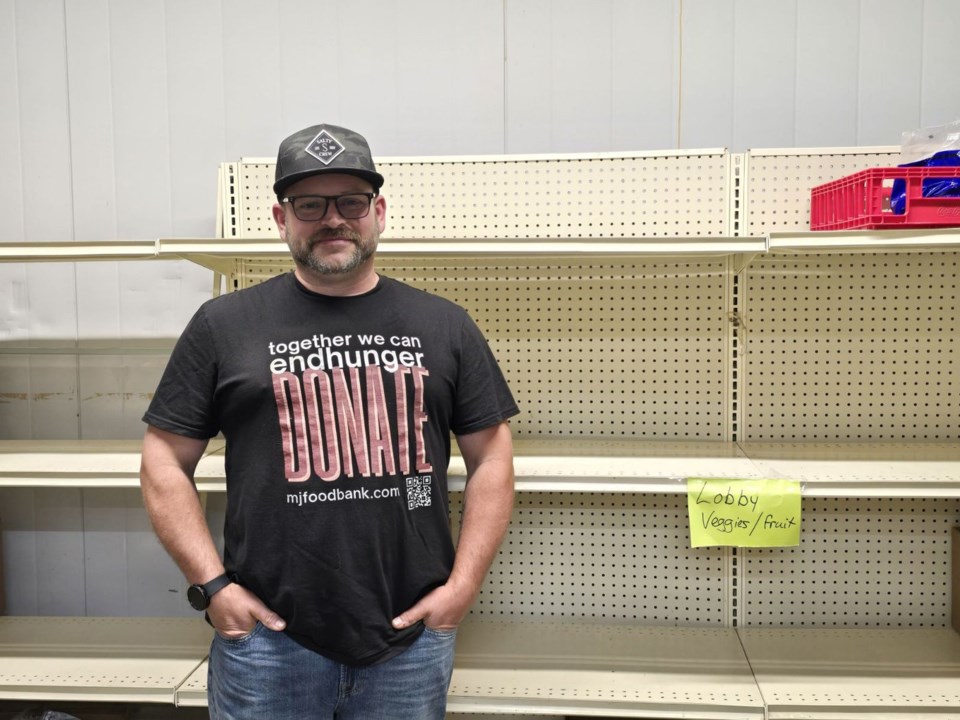MOOSE JAW, SASK. — Jason Moore recently took stock of the inventory at the food bank in Moose Jaw, Sask., and realized nothing would be left in two weeks.
To keep the shelves from going bare, the food bank's executive director says it's prepared to cut its hampers in half. That means one hamper per month for clients instead of two, starting in August.
"By still giving out two hampers for the remainder of July, we'll be bare bones by the end of the month," Moore said Thursday.
"We get to know our clients, and we know the struggles they're facing. Not being able to help them is absolutely devastating."
Moore said in past years, there would be enough food to last into the fall, just in time for the big annual Halloween drive to replenish pantries at the food bank west of Regina.
But this year is not like the last, or the one before, as more and more clients continue to access services.
Moore said the food bank helps about 800 households a month, double from two years ago. Donations have not increased at the same rate, he added.
The spike in demand is due to higher grocery prices, rent increases and other pressures affecting the cost of living, he said.
"It's a crisis," Moore said.
"Sadly, our government keeps asking food banks and our communities to carry this load, and yet they offer very little for aid."
Food banks across the country have said they're being pushed to the brink due to inflationary pressures.
John Bailey, CEO of Regina's food bank, said Moose Jaw's struggles point to a larger trend in Canada of food banks unable to keep up with demand.
He said while the Regina agency has been able to manage the influx, it has still put a strain on operations. The food bank served about 9,000 people five years ago. It expects to help roughly 20,000 this year.
"It's folks who never expected to be accessing a food bank who now use it on a regular basis. It's just spiking demand."
Bailey said addressing underlying issues — with more affordable housing, a living wage and disability supports — is necessary to reduce food bank usage.
Without more of those programs, he said, strain on the food bank will keep growing, though staff will "continue to work tirelessly to meet the needs of our community."
Moore said he has reached out to Moose Jaw residents and businesses, along with other food banks in the country, to ask for donations so he doesn't have to cut the hampers.
"I think we are all responsible for feeding the hungry people in our communities," he said.
"They are our brothers and sisters and our neighbours."
This report by The Canadian Press was first published July 18, 2024.
— By Jeremy Simes in Regina
The Canadian Press



